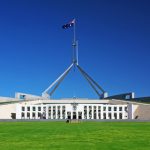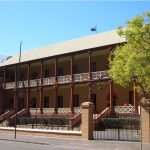Dishonestly Using Position as a Company Director in Australia

Controversial Australian politician Clive Palmer faces a potential prison sentence after being accused of fraud and corporate misconduct.
Mr Palmer was charged following an investigation by the Australian Securities and Investments Commission (ASIC). The investigation included a review of his business activities and funding of his political party, the Palmer United Party.
In 2016 the BRW “Rich 200” list estimated Mr Palmer’s wealth at A$600 million, and by 2019, it had increased to an estimated A$4.09 billion.
Questions over funding for Palmer United Party
ASIC alleges that Mr Palmer misused his position as a company director to funnel more than $12 million into his party’s 2013 election campaign, and that improper transfers took place in the weeks ahead of the September 2013 election after which he secured a seat in the house of representatives as the member for Fairfax, while the Palmer United Party won two Senate seats.
It’s been alleged that around $80 million in total was pumped into his campaign.
ASIC claims that between 5 August 2013 and 5 September 5 2013, Mr Palmer dishonestly obtained a benefit or advantage for his company Cosmo Developments and/or the Palmer United Party and others, by authorising the transfer of $10,000,000 from another of his companies, Mineralogy.
ASIC also alleges that more than $2 million was dishonestly obtained by Mr Palmer to the benefit of the now defunct public relations firm Media Circus, which ran the 2013 election campaign. Media Circus was sold to another company in 2016 and is no longer in operation.
Corporations Act 2001 (Cth)
The Corporations Act 2001 (Cth) outlines the duties and obligations upon the people who are directors or decision-makers of Australian companies.
Specifically, these cover four broad areas of responsibility:
- Care and diligence – This duty requires a director to act with the degree of care and diligence that a reasonable person might be expected to show in the role.
- Good faith – This duty requires a director to act in good faith in the best interests of the company and for a proper purpose including to avoid conflicts of interest, and to reveal and manage conflicts if they arise. This is known as a ‘fiduciary duty’ imposed by common law and a duty required in the Corporations Act 2001 (Cth).
- Not to improperly use position – This duty requires directors to not improperly use their position to gain an advantage for themselves or someone else, or to the detriment to the company.
- Not to improperly use information – This duty requires directors to not improperly use the information they gain in the course of their director duties to gain an advantage for themselves or someone else, or to the detriment to the company.
Not adhering to these can result in criminal action being taken.
The charges against Mr Palmer
Mr Palmer has been charged with two counts of dishonestly using his position as a director, under section 184(2)(a) of the Corporations Act 2001, which states as follows:
Good faith–directors and other officers
(1) A director or other officer of a corporation commits an offence if they:
(a) are reckless; or
(b) are dishonest;
and fail to exercise their powers and discharge their duties:
(c) in good faith in the best interests of the corporation; or
(d) for a proper purpose.
Use of position–directors, other officers and employees
(2) A director, other officer or employee of a corporation commits an offence if they use their position dishonestly:
(a) with the intention of directly or indirectly gaining an advantage for themselves, or someone else, or causing detriment to the corporation.
The maximum penalty for the offence is 5 years in prison.
Fraud
In addition to this, Mr Palmer has been charged with fraud under section 308C of Queensland’s Criminal Code of 1899, which provides that:
(1) A person who dishonestly—
(a) applies to his or her own use or to the use of any person—
(i) property belonging to another; or
(ii) property belonging to the person, or which is in the person’s possession, either solely or jointly with another person, subject to a trust, direction or condition or on account of any other person; or
(b) obtains property from any person; or
(c) induces any person to deliver property to any person; or
(d) gains a benefit or advantage, pecuniary or otherwise, for any person; or
(e) causes a detriment, pecuniary or otherwise, to any person; or
(f) induces any person to do any act which the person is lawfully entitled to abstain from doing; or
(g) induces any person to abstain from doing any act which that person is lawfully entitled to do; or
(h) makes off, knowing that payment on the spot is required or expected for any property lawfully supplied or returned or for any service lawfully provided, without having paid and with intent to avoid payment;
commits the crime of fraud.
The maximum penalty for fraud in Queensland is 5 years in prison.
Mr Palmer’s matter has been adjourned for mention in Brisbane Magistrates Court on 28 August 2020.
String of previous lawsuits
The allegations are not new. Details of payments between Mr Palmer’s private companies and the funding of its political party were revealed in detail following the collapse of Queensland Nickel in 2016.
The allegations of transfers of money from Mineralogy to Media Circus and Cosmo Developments were also raised in the long-running legal battle between Mr Palmer and the tenant of land owned by Mineralogy, Sino Iron – a group owned by Chinese conglomerate CITIC.
In 2015, the Queensland Supreme Court found the money given to Mineralogy by Sino that was later transferred to fuel Mr Palmer’s political campaign was not held in trust for Sino and could therefore be used for other purposes.
In 2019 Mr Palmer settled the majority of the $200 million lawsuit over the collapse of Queensland Nickel, including striking a deal with government-funded liquidators chasing $66 million in taxpayer funds used to cover sacked worker entitlements.
He also reached an out-of-court settlement with Aurizon, the biggest creditor from Queensland Nickel’s demise in early 2016. Aurizon was originally seeking $90 million, but the settlement ultimately reached has not been disclosed.








